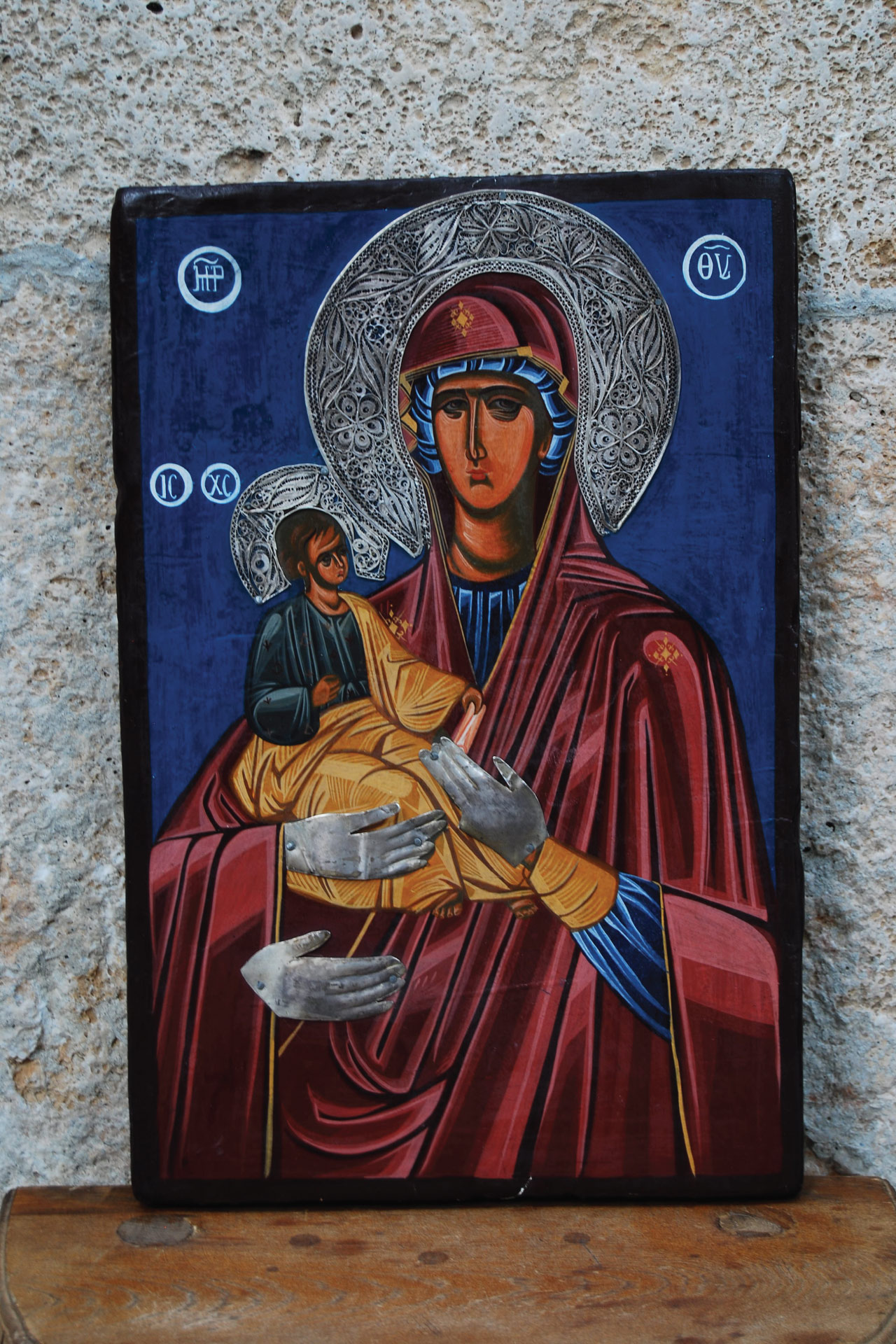Valuable possession of the Dormition of the Most Holy Theotokos monastery – Matka is an icon of the Most Holy Theotokos – of-Three-Hands. It is kept in the monastery library in the monastic quarters.
The Pentecostarion that probably in 1801 was brought from the monastery in Shishevo, was labeled by a monk Auxentij in 1846, where he wrote that it originates from Staro Nagorichane, and in 1801 was brought to the monastery in Matka, which he calls Most Holy Theotokos – of-Three-hand (probably according the icon of the Most Holy Theotokos (Presveta Bogorodica) Troeruchica icon, kept until today in the monastery).
The icons of the Most Holy Theotokos “of Three Hands” are painted in memory of the healing of the hand of St. John of Damascus, at the time of the iconoclasm. In his biography it is written:
“St. John of Damascus was first a minister of caliph Abdalmelech, and then a monk in the monastery of St. Sava. Due to his zealous advocacy of icons-respecting in the time of the iconoclastic emperor Leo Isavrian, John was slandered by this emperor at the caliph, who cut off his right hand. He prayed in front of the Most Holy Theotokos and his hand came together and miraculously healed him. Out of joy and gratitude to the Theotokos, St. John on the lower left side of the icon made a hand out of silver and attached this silver hand, similar to the cut one. And since then the icon was named Troerucica (of Three Hands). When he saw this miracle, the caliph repented, but John no longer wanted to stay with him as a nobleman, but retreated into a monastery, where in the beginning he was a model for the monks in humbleness, obedience and all monastic feats. He sang posthumous songs, composed the Octoichus, Irmology, the Menologion, the Paschal Canon, and wrote numerous theological works with inspiration and depth. Great as a monk, and as a poet, and as a theologian, and as a soldier of the Christ’s truth, Damascene is one of the great fathers of the Church. He died peacefully in 776, in the one hundred and fourth year of his life. “

